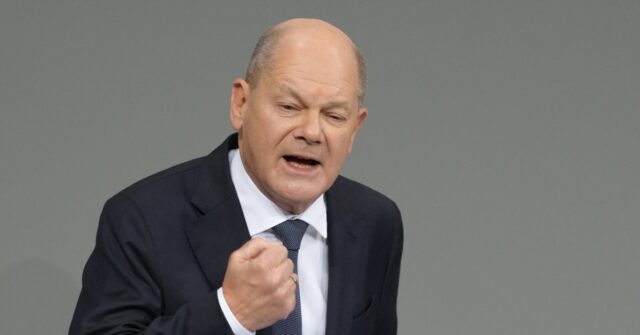German Chancellor Olaf Scholz faced a significant political setback on Monday as he lost a parliamentary vote of confidence, which has initiated the process for early elections in Germany, the largest economy within the European Union. The early elections are set for February 23, 2024, and this move was anticipated by Scholz, who acknowledged that his government is struggling against a backdrop of an economic slowdown. By calling for early elections, Scholz is aiming to rejuvenate his party’s dwindling support and re-energize the leftist coalition government he leads. This decision has propelled Germany into a period of heightened political activity as various parties prepare for an election campaign that could redefine the country’s governance.
Scholz’s Social Democratic Party (SPD), currently experiencing a decline in public support, faces stiff competition from the opposition, particularly the conservative Christian Democratic Union (CDU) led by Friedrich Merz. Polls indicate a significant gap in favor of the CDU, suggesting a potential shift in power dynamics within the German political landscape. In his address to lawmakers, Scholz emphasized the crucial role of voters in determining Germany’s political trajectory. He posed provocative questions regarding the nation’s commitment to investing in its future and the long-term implications of delaying necessary economic investments.
In an attempt to connect with the electorate, Scholz is promoting policies aimed at updating Germany’s stringent fiscal regulations, including proposals to raise the national minimum wage and lower the value-added tax on food items. These policy proposals are part of his broader election strategy to reinforce confidence in Germany’s economic resilience and address growing concerns around the cost of living and economic stability. The Chancellor’s emphasis on investment and modernization is a bid to frame the upcoming elections as a pivotal moment for deciding the nation’s future direction.
Additionally, Scholz underscored Germany’s significant role in international affairs, reiterating that Germany is Ukraine’s leading military supplier in Europe. He expressed a commitment to maintaining this support, which is a pertinent aspect of the broader geopolitical climate that has implications for Germany’s domestic policies and international standing. By aligning his government with key global issues, Scholz seeks to bolster his party’s image as responsible and engaged in critical matters beyond national borders.
The occurrence of a confidence vote is historically rare in Germany, reflecting the country’s tradition of political stability. This marks only the sixth time in the postwar era that a German Chancellor has initiated such a vote. The last case was in 2005 when Gerhard Schröder, then Chancellor, sought an early election that led to Angela Merkel’s rise to power. The historical weight of such votes highlights the seriousness of the current political climate and underscores the significant consequences that could arise from the upcoming election.
As Germany gears up for this election, political analysts and citizens alike are bracing for a potentially chaotic campaign season. The implications of Scholz’s decision to call for early elections could reshape the political landscape in Germany for years to come, with parties mobilizing to capture voter sentiments amid economic challenges. The outcome of this election will not only determine the fate of Scholz and his coalition but also set the course for Germany’s economic policies and its role in the European Union and the wider international community.

